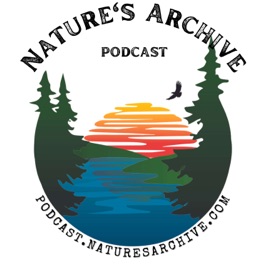
Advertise on podcast: Nature's Archive
Rating
4.9 from
Country
This podcast has
91 episodes
Language
Publisher
Explicit
No
Date created
2020/06/30
Average duration
64 min.
Release period
15 days
Description
Nature’s Archive explores and reveals nature in all of its forms through interviews with ecologists, naturalists, educators, authors, and researchers. You'll be inspired by each guest's unique journey and the amazing nuance of nature, which never ceases to challenge conventional wisdom. Nature's Archive is part of Jumpstart Nature, an organization that seeks to empower everyone to support nature and the environment. Join me on this journey!
Podcast episodes
Check latest episodes from Nature's Archive podcast
#91: Examining Tree Physiology with Dr. Lucy Kerhoulas: Insights into Drought Adaptation and the Carbon Smoking Gun
2024/02/26
In nature, tree physiology is like the engine that keeps forests running smoothly, similar to how human physiology keeps our bodies going. Just as we study how our bodies' metabolism, respiratory systems, and other systems work to keep us healthy, biologists can look at tree physiology to understand how trees grow, use energy, and cope with challenges in their environment.
Today’s guest, Dr. Lucy Kerhoulas, is an Associate Professor of Forest Ecophysiology at Cal-Poly Humboldt. She specializes in the forest physiology of northwestern California, which includes redwoods, Douglas fir, oaks, and more.
Today Dr. Kerhoulas explores various aspects of forest physiology including how they adapt to different conditions such as fire and drought. She delves into the scientific tools used to study how trees respond to environmental changes, including measuring carbon isotopes in tree tissues to assess impacts of drought. And this understanding of carbon isotope preferences provides interesting insights into historical atmospheric carbon levels, dating back hundreds of years. In fact, this is sometimes called “the smoking gun”, because it provides strong evidence of fossil fuel contributions to atmospheric carbon.
Dr. Kerhoulas also discusses how trees can share resources and signal each other during times of stress, possibly creating a cooperative environment within a forest.
This was a jam-packed discussion, and I hope you enjoy it.
FULL SHOW NOTES
Links to Topics Mentioned
Bigfoot Trail Alliance
CDFW
CNPS
CZU Complex Fire Map
Kerhoulas Forest Physiology Lab
Michael Kauffmann in Nature’s Archive Episode #41 discusses conifer trees and the Klamath Mountains
Thanks to Kat Hill for editing help in today's episode.
.
Music: Spellbound by Brian Holtz MusicLicense (CC BY 4.0): https://filmmusic.io/standard-licenseArtist website: https://brianholtzmusic.comSupport Us On Patreon!
.Get inspired with the Jumpstart Nature Podcast - entertaining and immersive, it's the nature podcast we all need.Check past Nature's Archive episodes for amazing guests such as Doug Tallamy, Elaine Ingham, and Gabe Brown. And topics ranging from bird migration to fungi to frogs and bats!
more
#90: From Invasive Species to Allergenic Pollen with Allasandra Valdez (The Happy Botanist Podcast) and Dr. Daniel Katz
2024/02/12
You’re in for a treat today - it’s like two episodes in one.
My guest today is Allasandra Valdez, a botanist working on her PhD in plant physiology in Cornell University’s Ecology and Evolutionary Biology department. Allasandra also has a background studying invasive species, and is the creator and host of The Happy Botanist podcast.
Today’s wide-ranging discussion touches on everything from studying plants' response to climate change through looking at carbon 13 isotopes, to invasive species including the Hemlock wooly adelgid, to the surprising behaviors of an invasive grass called Johnson Grass.
We also discuss Allasandra’s work in science communication and her podcast, The Happy Botanist.
As you know, my Jumpstart Nature organization seeks to amplify great work being done by others, and after meeting Allasandra and learning about her work and her vision, I felt that she fit the bill. So the last 30 minutes or so of today’s episode is a re-share of one of her episodes with Dr. Dan Katz. Dr. Katz studies airborne pollen - specifically allergenic pollen. If you’ve ever wondered why some pollen causes so much havoc, or if those pollen forecasts you sometimes see on the local weather are accurate, stay tuned to learn more.
Find Allasandra on Instagram and TikTok, and her podcast is on all of the usual podcast services, and the web at The Happy Botanist podcast.
FULL SHOW NOTES
Links
Daniel Katz: https://www.thekatzlab.com/
The Happy Botanist podcast
.
Music: Spellbound by Brian Holtz MusicFree download: https://filmmusic.io/song/9616-spellboundLicense (CC BY 4.0): https://filmmusic.io/standard-licenseArtist website: https://brianholtzmusic.comSupport Us On Patreon!
.Get inspired with the Jumpstart Nature Podcast - entertaining and immersive, it's the nature podcast we all need.Check past Nature's Archive episodes for amazing guests such as Dr. Doug Tallamy, Dr. Elaine Ingham, and Gabe Brown. And topics ranging from bird migration to fungi to slime mold!
more
#89: Burning Questions: Understanding Fire Management with Lenya Quinn-Davidson
2024/01/29
Many of you might recall the dramatic 2020 fire season in the western USA. In California alone, close to 4 million acres burned. Cities were clouded with smoke and unhealthy air for many weeks. I had ash fall at my home in San Jose, CA on several occasions.
But did you know that based on pre-colonial historical estimates, 4 million acres burned would be considered “below average”. How can that be? Does that mean that every summer in the 1700’s had smoke filled air and devastating fires? Spoiler alert: the answer is no.
In today’s episode, we reconcile how it was possible for more acres of land to burn every year, but with less dramatic impact. In fact, that historical fire was largely beneficial to the land.
Our guest today, who helps us decipher historical fire and how we can add more beneficial fire back to the landscape is Lenya Quinn-Davidson.
And when you have a guest who’s first name literally means “firewood” in Spanish (alternative spelling), you know you’ve found the right person to discuss wildfire management.
But Lenya Quinn-Davidson’s qualifications extend well beyond her name. She’s the Director of the FIRE network for the University of California’s Agriculture and Natural Resources organization. She focuses on the various ways humans connect with fire, including the use of prescribed fire for habitat restoration, invasive species control, and ecosystem and community resiliency. She’s actively engaged in local and national prescribed fire communities, and is an advocate for increasing diversity in the world of wildfire.
A quick aside before we get into the interview. Obviously, climate change is a huge component for why we see bigger fires. Heat has a disproportionate impact on fire intensity. So while we don’t talk about climate change much today, it is absolutely an amplifying factor in wildfire intensity and frequency.
You can find Lenya at LenyaQD on twitter.
FULL SHOW NOTES
Links
California Prescribed Burn Associations
Dixie Fire
Scott Stephens - wildfire reconstructions from UC Berkeley
UCANR Fire Advisors
WTREX - Women-in-Fire Prescribed Fire Training Exchanges
Thanks to Kat Hill for editing help in this episode.
Music: Spellbound by Brian Holtz MusicFree download: https://filmmusic.io/song/9616-spellboundLicense (CC BY 4.0): https://filmmusic.io/standard-licenseArtist website: https://brianholtzmusic.comSupport Us On Patreon!
.Get inspired with the Jumpstart Nature Podcast - entertaining and immersive, it's the nature podcast we all need.Check past Nature's Archive episodes for amazing guests such as Dr. Doug Tallamy, Dr. Elaine Ingham, and Gabe Brown. And topics ranging from bird migration to fungi to slime mold!
more
#88: BLM Unveiled: A Journey with Josh Jackson into our Forgotten Lands
2024/01/15
I bet you’ve heard of the National Park Service. Or the US Forest Service which manages all of our National Forests.
But did you know that there is another land management agency that manages more public land than either the National Parks or National Forests? This overlooked agency is the Bureau of Land Management, or BLM.
Josh Jackson has become one of the BLM’s top enthusiasts, with a huge following on his forgottenlandscalifornia instagram. He’s also a writer and conservationist, and is working on a new book all about BLM lands.
Today we dig into what turned Josh on to these fascinating places. He gives us a nice overview of what they’re like, the amazing sites and plants and animals you may see, and how you can enjoy them too.
We also learn about his upcoming book, to be published with Heyday Books. It sounds intriguing , and aims to fill a major gap in the literature. You can find volumes about national and state parks and national forests - but try to find similar literature on BLM lands. Good luck on that!
I strongly suggest you follow Josh on his forgottenlandscalifornia instagram to see and hear about some of these amazing places.
FULL SHOW NOTES
LINKS
People and Organizations
Baba Dioum
Bureau of Land Management's visitors website
Heyday Books
Obi Kaufmann
Books and Other Things
California Desert Plants, by Kauffmann, Rundel, and Gustafson
Federal Land Policy and Management Act
In Defense of Public Lands, by Steven Davis
Sand County Almanac, by Aldo Leopold
These American Lands: Parks, Wilderness, and the Public Lands, by Zaslowsky and Watkins
The Trouble With Wilderness - William Cronon's essay
.
Music: Spellbound by Brian Holtz MusicFree download: https://filmmusic.io/song/9616-spellboundLicense (CC BY 4.0): https://filmmusic.io/standard-licenseArtist website: https://brianholtzmusic.comSupport Us On Patreon!
.Get inspired with the Jumpstart Nature Podcast - entertaining and immersive, it's the nature podcast we all need.Check past Nature's Archive episodes for amazing guests such as Dr. Doug Tallamy, Dr. Elaine Ingham, and Gabe Brown. And topics ranging from bird migration to fungi to slime mold!
more
#87: California Condors with Tiana Williams-Claussen (Golden State Naturalist Crossover!)
2024/01/01
Today’s episode is all about California Condors with Tiana Williams-Claussen, the director of the Yurok Tribe’s wildlife department. This episode is actually from my friend Michelle Fullner of the Golden State Naturalist podcast. If you don’t know Golden State Naturalist, I think this episode is pretty indicative of Michelle’s work. She travels around California to meet and interview interesting people in the field. There is a definite advantage to in-person interviews, and I wish I could do more.
Even though this episode is about California Condors, and the podcast is California-centric, today’s episode is still broadly applicable. California Condors historically lived in a large chunk of the western North America, from southern Canada to northern Mexico. And the challenges facing Condors, and the efforts to reintroduce and sustain them have many parallels.
Now, I don’t want to take away from Michelle’s introduction for this episode coming shortly. But I do want to tell you why I wanted to cover Condors on Nature’s Archive.
Right off the bat, condors are huge - boasting a 9 foot wingspan. They’re also critically endangered, which is why Tiana Williams-Claussen is such a great guest - she’s leading a reintroduction program with the Yurok Tribe in northern California.
As long time listeners know, I particularly enjoy covering overlooked and misrepresented flora and fauna. And for today, I’m going to lump condors and vultures together. In fact, in North America, vultures and condors are in the same family of birds, and occupy similar ecological roles.
And what role is that? Well, the textbooks say “scavengers”. And if you are like most people, you might have an unconscious negative bias towards scavengers. Why? So much of our human-centric perspective is based on how we live, and casts a negative light towards other evolved lifestyles, such as parasitism, or in this case, scavenging.
To scavenge - that is, eat already dead animals - one must have some pretty amazing adaptations. Afterall, the moment an animal dies, bacteria starts to take over. And the fact the animal died in the first place might indicate that it was already diseased, especially if it didn’t die as roadkill.
If a diseased carcass remains on the landscape for an extended period of time, it can become a disease vector. But vultures and condors are special. Their acidic stomachs and unique immune systems help protect them.
I heard a great reframing of the role condors and vultures play - instead of scavengers, they are nature’s immune system. By rapidly clearing dead animals, they prevent and halt disease spread. And there are examples around the world where vultures had died off for various, usually human-caused reasons, and this resulted in significant increases in diseases in other animals - including rabies.
FULL SHOW NOTES
Music: Spellbound by Brian Holtz MusicFree download: https://filmmusic.io/song/9616-spellboundLicense (CC BY 4.0): https://filmmusic.io/standard-licenseArtist website: https://brianholtzmusic.comSupport Us On Patreon!
.Get inspired with the Jumpstart Nature Podcast - entertaining and immersive, it's the nature podcast we all need.Check past Nature's Archive episodes for amazing guests such as Dr. Doug Tallamy, Dr. Elaine Ingham, and Gabe Brown. And topics ranging from bird migration to fungi to slime mold!
more
#86: Double Feature! The Yard of the Future and We Live in a 10% World
2023/12/18
Double the nature content in the same amount of time as a typical Nature's Archive? Well, I think we've come close today, and no, we're not playing an interview at double speed.
Here's your chance to hear two episodes of the Jumpstart Nature podcast from our pilot season, covering the topics of treating your yard like a habitat (The Yard of the Future Full Show Notes), and how shifting baseline syndrome affects our perception of the health of the environment (We Live in a 10% World Full Show Notes).
You might recognize bits and pieces of these episodes, because I aired a couple of the interviews in their entirety on Nature's Archive. But there is lots of new content that hasn't aired here.
I hope you enjoy this format! Jumpstart Nature brings multiple perspectives to topics we cover, and ties it together with an entertaining and inspiring narrative from Griff Griffith.
Let me know what you think! And if you like it, please subscribe to Jumpstart Nature on your favorite podcast app.
Guests in this double feature include Dr. Doug Tallamy, Mary Phillips, Leslie Inman, Dr. Loren McClenachan, Dr. Alison Whipple, Ben Goldfarb, and Francisco Saavedra Jr.
And regular Nature's Archive interview podcasts will be back in two weeks!
Links
The Yard of the Future Full Show Notes
We Live in a 10% World Full Show Notes
Subscribe to the Jumpstart Nature Podcast
On Apple
On Spotify
On Overcast
On Other Apps
Additional Music Used in this Project:
Music: Sunny Morning by MusicLFiles
Free download: https://filmmusic.io/song/7813-sunny-morning
License (CC BY 4.0): https://filmmusic.io/standard-license
Music: Horde Of Geese by Alexander Nakarada
Free download: https://filmmusic.io/song/9835-horde-of-geese
License (CC BY 4.0): https://filmmusic.io/standard-license
Music: Lofi Prairie by Brian Holtz Music
Free download: https://filmmusic.io/song/9247-lofi-prairie
License (CC BY 4.0): https://filmmusic.io/standard-license
.
Music: Spellbound by Brian Holtz MusicFree download: https://filmmusic.io/song/9616-spellboundLicense (CC BY 4.0): https://filmmusic.io/standard-licenseArtist website: https://brianholtzmusic.comSupport Us On Patreon!
.Get inspired with the Jumpstart Nature Podcast - entertaining and immersive, it's the nature podcast we all need.Check past Nature's Archive episodes for amazing guests such as Dr. Doug Tallamy, Dr. Elaine Ingham, and Gabe Brown. And topics ranging from bird migration to fungi to slime mold!
more
#85: Life After Dark (Nocturnalia!) with Charles Hood and Dr. José Martínez-Fonseca
2023/12/04
Let’s dive into the enchanting world of hidden wonders that come to life after dark!
Our guests today are Charles Hood and José Martínez-Fonseca, authors of the new book “Nocturnalia: Nighttime Life of the Western USA" from Heyday Books.
Charles is an author, poet, birder, and world traveler, and as you’ll hear, an exceptional naturalist, too. Jose has a PhD in Bat Ecology, and as a result, has extensive experienced studying animals of the night.
Today we uncover the intriguing behaviors of nocturnal creatures such as nectar-feeding bats and vampire bats, scorpions that glow under UV light, and the often ignored but fascinating small owls - we’re talking owls the size of a American Robin - or even smaller! Observe how even the familiar environment of urban backyards transform into arenas of ecological discovery when the sun goes down.
Tailored for nature enthusiasts and curious minds alike, this conversation is a gateway to a world less explored - the intriguing and overlooked world of nocturnal nature.
FULL SHOW NOTES (with photos!)
LINKS
A Salad Only The Devil Would Eat, by Charles Hood
Charles Hood's Website
Jose Martinez-Fonseca on Instagram, and his photography website
Nature's Archive episode about Bats with Dr. Dave Johnston
Music: Spellbound by Brian Holtz MusicFree download: https://filmmusic.io/song/9616-spellboundLicense (CC BY 4.0): https://filmmusic.io/standard-licenseArtist website: https://brianholtzmusic.comSupport Us On Patreon!
.Get inspired with the Jumpstart Nature Podcast - entertaining and immersive, it's the nature podcast we all need.Check past Nature's Archive episodes for amazing guests such as Dr. Doug Tallamy, Dr. Elaine Ingham, and Gabe Brown. And topics ranging from bird migration to fungi to slime mold!
more
#84: Dr. Marshall Shepherd - Weather is Your Mood, Climate is Your Personality
2023/11/20
Weather is like your mood, and climate is like your personality. Those are the words of today’s guest, Dr. Marshall Shepherd (Twitter, Facebook and Instagram).
Despite the clear differences between these two concepts, there are many topics of confusion that persist. For example, is El Nino, which we discussed a few weeks ago on this podcast, a climate condition or a weather condition? And how can forecasters be confident in their long term climate predictions when it is so hard to predict weather 10 days out?
Dr. Shepherd is just the person to help us understand these concepts. He is the Director of the Atmospheric Sciences program at the University of Georgia. He’s also host of the Weather Channel series Weather Geeks, previously a research meteorologist for NASA's Goddard Space Flight Center, and has had multiple popular TED talks.
Today we talk about climate and weather and how they are predicted. We discuss the computer models used for both, how they differ, how they've improved, and where they still need improvement.
He also shares some of his research on how urban areas affect and change weather, and several other fascinating topics.
This episode might sound different than a typical Nature’s Archive interview. That’s because we were planning to use this conversation in an upcoming Jumpstart Nature podcast. So, you might hear a few terms and concepts mentioned without explanation - but stick with it, because we end up defining everything later.
Check these past episodes for more information on topics discussed today: episode #80 on oceans and El Nino and episode #62 on snowflake and precipitation genesis
FULL SHOW NOTES
Dr. Shepherd's Publications
Ed Lorenz and Chaos Theory
Example Forecast Discussion available from the National Weather Service
Hurricane Otis
Six America’s Study
TED Talks: 3 kinds of bias that shape your worldview (2018); Slaying the "zombies" of climate science (2013)
.
Music: Spellbound by Brian Holtz MusicFree download: https://filmmusic.io/song/9616-spellboundLicense (CC BY 4.0): https://filmmusic.io/standard-licenseArtist website: https://brianholtzmusic.comSupport Us On Patreon!
.Get inspired with the Jumpstart Nature Podcast - entertaining and immersive, it's the nature podcast we all need.Check past Nature's Archive episodes for amazing guests such as Dr. Doug Tallamy, Dr. Elaine Ingham, and Gabe Brown. And topics ranging from bird migration to fungi to slime mold!
more
#83: If Trees Could Talk with Dr. Grant Harley
2023/11/06
There are living trees in the United States that are approaching 5000 years old - and I’m not talking about trees that clone (I’m looking at you, aspen). Imagine if those trees could talk! Well, in a way, they can!
That’s where dendrochronologists like Dr. Grant Harley come in.
And it turns out that the science of dendrochronology is so much more far reaching than I ever imagined. Dr. Harley tells us how he reads the trees, inferring things like climate patterns, wildfire history, and community ecology. But this unique science even allows for dating artifacts, such as coffins, cabins, shipwrecks, and other wooden objects.
We cover all of this and more, including how tree rings are assessed without killing the tree. And how technology is used to make these assessments. Dr. Harley also answers why trees in the western US make better specimens for assessing historical climate. And just what is the medieval climate anomaly and why is it important to us today?
I feel like Dr. Harley could make a series of podcasts out of dendrochronology, the history it tells us, and the mysteries it helps us solve. Find Dr. Harley on Twitter @dendrotrog.
FULL SHOW NOTES
Links To Topics Discussed
Note: links to books are affiliate links
Fundamentals of Tree Ring Research by James Speer
The Fellowship of the Tree Rings RadioLab episode that Dr. Harley appeared on
North American Dendroecological Fieldweek
Thanks for Michelle Balderston for editing help this week
.
Music: Spellbound by Brian Holtz MusicFree download: https://filmmusic.io/song/9616-spellboundLicense (CC BY 4.0): https://filmmusic.io/standard-licenseArtist website: https://brianholtzmusic.comSupport Us On Patreon!
.Get inspired with the Jumpstart Nature Podcast - entertaining and immersive, it's the nature podcast we all need.Check past Nature's Archive episodes for amazing guests such as Dr. Doug Tallamy, Dr. Elaine Ingham, and Gabe Brown. And topics ranging from bird migration to fungi to slime mold!
more
#82: Amanda Monthei - Life with Fire
2023/10/23
As you all know, I find wildfire to be fascinating. It’s complex, simultaneously necessary and at times devastating, and wildly misunderstood. And the landscape of fire is rapidly changing - literally and figuratively. So, I hope to continue to bring a variety of voices and perspectives on wildfire - including today.
Have you ever wondered what it is like to be on the fire lines with a wildfire crew? Or what it takes to join a crew? Or the differences between crews, such as engine crews, hand crews, and hot shot crews? And how do they actually manage active wildfires? And where does prescribed and cultural burning fit into the picture?
Today’s guest, Amanda Monthei, helps us get some answers. Amanda is a former wildland firefighter, having participated in a variety of crews, including a hot shot crew. She is now a writer, host of the Life with Fire podcast where she interviews a wide variety of people involved with wildfire, and she’s an occasional public information officer on wildfires.
In addition to her podcast, you can find Amanda at lwf_pod on twitter, lifewithfirepodcast on Facebook, and lifewithfirepod on instagram.
I hope you enjoy today’s episode - and be sure to check out the show notes on podcast.naturesarchive.com to see the video we referenced, and links to everything we discuss, including Amanda’s social media accounts!
FULL SHOW NOTES
Links to Topics Discussed
Life with Fire Podcast (Amanda's Podcast)
Good Fire Podcast
High Country News
Related Nature's Archive Podcasts
Justin Angle - On the Fireline
Rick Halsey - Wildfire Ecology of the Chaparral and the American West
Music: Spellbound by Brian Holtz MusicFree download: https://filmmusic.io/song/9616-spellboundLicense (CC BY 4.0): https://filmmusic.io/standard-licenseArtist website: https://brianholtzmusic.comSupport Us On Patreon!
.Get inspired with the Jumpstart Nature Podcast - entertaining and immersive, it's the nature podcast we all need.Check past Nature's Archive episodes for amazing guests such as Dr. Doug Tallamy, Dr. Elaine Ingham, and Gabe Brown. And topics ranging from bird migration to fungi to slime mold!
more
#81: Dr. Emma Greig - From Fairywrens to FeederWatch
2023/10/09
Dr. Emma Greig is a behavioral ecologist who has been leading Project FeederWatch, a multi-decade community science effort led by the Cornell Lab of Ornithology and Birds Canada.
Today's discussion could be broadly characterized as "how to take care of the birds that visit your yard" - and you might be surprised at some of the recommendations.
Our discussion begins in Australia, where Dr. Greig did her dissertation. Her work studied the amazing behavior of the splendid fairywren, a small and colorful Australian bird, who literally sing in the shadows of a predator.
From there, we get into Project FeederWatch and the practice of bird feeding in general. Project FeederWatch has collected an immense dataset that reveals a lot about birds that visit feeders and people's yards in general. We discuss some of the findings, and how you can participate. It's easy!
It's a wide ranging discussion, including topics like - does feeding birds affect their migration routes or timing, or their geographic ranges? How to minimize pests getting into your feeders? Does widespread feeding birds impact populations or the composition of bird communities?
We also talk about best practices for feeding birds. Yes, we're taking on a responsibility of caring for wild animals, so there are several important things we need to do, such as paying attention to disease spread.
Dr. Greig gets into all of this and more. So if you feed birds or are considering feeding birds, this is an important episode to listen to.
Find Project FeederWatch on Twitter.
Check out Jumpstart Nature's podcast episode #2, "Plant Your Birdfeeder", for more from Dr. Greig and other experts on birds and their habitats.
FULL SHOW NOTES
Links To Topics Discussed
FeederWatch Scientific DataKilling with kindness: Does widespread generalised provisioning of wildlife help or hinder biodiversity conservation efforts? - scientific paper by Jack Shutt and Alex LeesPreventing Window StrikesProject FeederWatch - Begins on November 1!
.
Music: Spellbound by Brian Holtz MusicFree download: https://filmmusic.io/song/9616-spellboundLicense (CC BY 4.0): https://filmmusic.io/standard-licenseArtist website: https://brianholtzmusic.comSupport Us On Patreon!
.Get inspired with the Jumpstart Nature Podcast - entertaining and immersive, it's the nature podcast we all need.Check past Nature's Archive episodes for amazing guests such as Dr. Doug Tallamy, Dr. Elaine Ingham, and Gabe Brown. And topics ranging from bird migration to fungi to slime mold!
more
#80: El Niño (ENSO) and Ocean Temperatures
2023/09/25
Have you heard of El Niño? Some people call it the single biggest influence on winter weather in North America. But what is it, and how does it work? And we're in an El Niño event this year, and it's going to affect our weather (and ecology!)
There is always much confusion about El Niño, what it is, why it occurs, and how it might alter our weather in the coming seasons.
Today's episode looks at El Niño, which is one part of the El Niño Southern Oscillation, or ENSO. Consider this a primer - an accessible look at some of the mechanisms and impacts of El Niño, and how and why it can impact weather from India to California and beyond. And we also include a few ecological tidbits here and there.
In order to give El Niño its due, we also cover some of the basics of how oceans influence weather.
I tried hard to pack a lot of information into 50 minutes, along with a lot of analogies to help reinforce some of the points. Let me know how I did! And of course, these are very complex systems, so there is much that I couldn't cover.
Looking ahead, we will have an expert climatologist later this year, so this episode will serve as good background for some of that conversation. I also have interviews with a dendrochronologist (tree ring expert!), a wildfire episode with an ex-firefighter, and an episode on nocturnal animals. So be sure to subscribe to the podcast in your favorite app to ensure you don't miss future releases.
FULL SHOW NOTES
Links To Topics Discussed
Daniel Swain - Weather West, YouTube Office Hours
Jet Steam Basics
Jet Stream Alignment in ENSO Scenarios
National Weather Service CPC ENSO Report (PDF)
Rossby Waves
Music: Spellbound by Brian Holtz MusicFree download: https://filmmusic.io/song/9616-spellboundLicense (CC BY 4.0): https://filmmusic.io/standard-licenseArtist website: https://brianholtzmusic.comSupport Us On Patreon!
.Get inspired with the Jumpstart Nature Podcast - entertaining and immersive, it's the nature podcast we all need.Check past Nature's Archive episodes for amazing guests such as Dr. Doug Tallamy, Dr. Elaine Ingham, and Gabe Brown. And topics ranging from bird migration to fungi to slime mold!
more
Podcast reviews
Read Nature's Archive podcast reviews
disco___very
2023/09/25
Wonderfully Done!
I always look forward to the new episodes of Nature’s Archive. Great guest speakers, super interesting topics, pro production, nice flow, and highly e...
more
Camp1951
2023/06/16
The Nature of Viruses
Great, great program and a great channel!
Burdgyrl
2023/04/18
NPR Quality Nature Podcast
They really lay it out so that the average person can understand deeply scientific aspects of nature.
AliPali4
2022/12/11
Fantastic nature series!
Michael is a terrific interviewer, and he gets all kinds of experts to talk about a wide variety of topics in nature. I have learned so much from list...
more
Monahseetah
2022/09/04
Fascinating!
This podcast provokes awe and wonder. It’s educational, but also interesting and fun. The guest speakers are knowledgeable and passionate. I learn s...
more
Phleabus
2022/07/04
Informative and inspiring!
No matter the subject, I always end up learning something from this podcast. Great guests, great interview questions, and great links on the podcast ...
more
Golden State Naturalist
2022/06/25
Informative and engaging!
Michael does a fantastic job finding knowledgeable, engaging guests on a variety of fascinating topics. I learn so much in each episode! Thanks for ma...
more
~~~t
2022/05/13
Well-covered topics, yet concise
This is a good collection of nature topics, with lots of accessible information. The interviews are edited to be efficientyet retain a fascinating dep...
more
bmillin
2020/07/10
Wonderful interviews
Michael Hawk combines a sensitivity and intelligence that relaxes his guests and helps them think about and answer his probing questions. I found his...
more
Podcast sponsorship advertising
Start advertising on Nature's Archive & sponsor relevant audience podcasts
You may also like these nature Podcasts
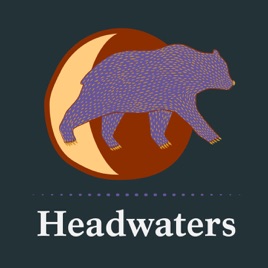
4.9
363
34
Headwaters
Glacier National Park - National Park Service
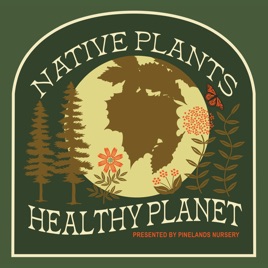
4.9
230
198
Native Plants, Healthy Planet
Pinelands Nursery
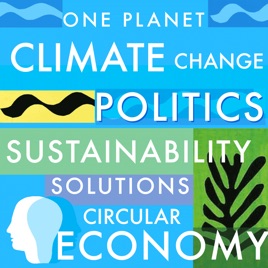
5
55
301
Sustainability, Climate Change, Renewable Energy, Politics, Activism, Biodiversity, Carbon Footprint, Wildlife, Regenerative
Environmental Solutions · One Planet Podcast · Creative Process Original Series
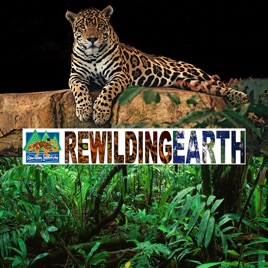
4.9
58
118
Rewilding Earth Podcast
The Rewilding Institute
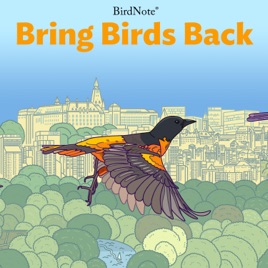
4.9
156
41
Bring Birds Back
BirdNote
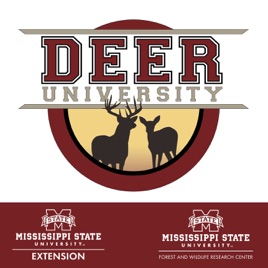
4.9
479
76
Deer University
Dr. Bronson Strickland & Dr. Steve Demarais
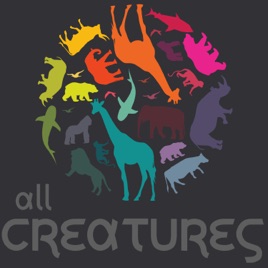
4.8
450
410
All Creatures Podcast
All Creatures Podcast

4.5
8
6
Sound Healing / Sound Bath
Omandala Vietnam
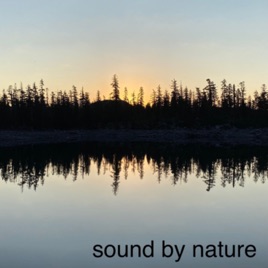
4.6
377
190
Sound By Nature
Sound By Nature
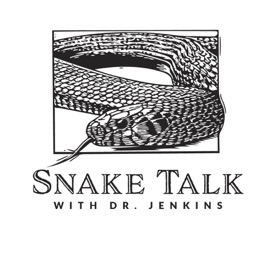
4.9
75
99
Snake Talk
Dr. Chris Jenkins



